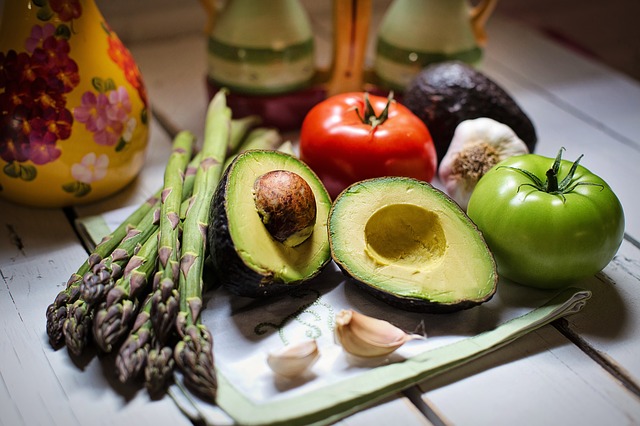The vegan diet has become popular for environmental, ethical, and health-related reasons, here are four things to know before you go vegan.
Vegan is defined as a diet that consists of fruits, vegetables, nuts, seeds, and grains. The vegan diet excludes meat, fish, dairy, and eggs. In other words, vegans do not eat animal products. Similarly, the vegetarian diet excludes meat but includes dairy, eggs, and sometimes fish. In his article, Health Effects of Vegan Diets, Winston J. Craig provides a health-related overview of the vegan diet.
-
Vegan diet may reduce risk of cardiovascular disease
The vegan diet can help lower the risk of cardiovascular disease. This is because vegans tend to carry less weight, have a lower BMI, fewer blood lipids, and lower blood pressure and total LDL cholesterol than vegetarians. Eating more fruits and vegetables increases antioxidants, fibre, folic acid, and phytochemical intake. Intake of these nutrients can lower blood cholesterol and can lower the chance of stroke and heart disease.
-
Vegan diet may affect cancer risk
The vegan diet can help lower cancer risk. Obesity is a large contributor to the development of cancer. As vegans tend to carry less weight, there is a decreased chance of the development of cancer. Furthermore, foods such as fruits and vegetables, and legumes contain nutrients that can protect against different cancers. The phytochemicals are antioxidant and anti-proliferative; these factors help decrease the chance of cancer cell growth.
On the other hand, vegans can experience vitamin D deficiencies. Low vitamin D levels can increase the risk of cancers. Meat, dairy, and egg consumers are at an increased risk of developing both prostate, colorectal, and pancreatic cancers. Further studies are needed in order to fully understand how the vegan diet is associated with a decreased risk of cancer.
-
Vegan diet may affect bone mineral density
A concern related to the vegan diet is lowered bone mineral density. Previous studies have shown fractures of the hip and spine, or even bone loss in older vegans. This is from a vegan diet that is low in protein and calcium. Other nutrients associated with bones are magnesium, potassium, vitamin D, and vitamin K. However, it is noted that by eating proper foods (fruits and vegetables), vegans will acquire these nutrients. The article notes that a proper pH balance will keep bones healthy. Eating foods that form acidity in the body will result in urinary calcium excretion, decreasing calcium levels and effecting bone health. Eating a vegan diet high in alkaline foods (fruits and vegetables, leafy greens, tofu, tahini, and orange and apple juices) will provide the body with a lot of potassium, magnesium, and vitamin K, allowing healthy calcium levels and healthy bones. Furthermore, vegans often eat tofu and other soy products for protein intake. Not only is soy great for protein, but also for bone health.
-
Possible nutritional concerns for vegans
Some concerns include not getting a sufficient amount of n-3 Polyunsaturated fat (long-chain n-3 fatty acids), vitamin D, vitamin B-12, and zinc.
n-3 Polyunsaturated fat
Vegans can take vegan algae fatty acid supplements that will allow them to get EPA and DHA. Vegans can also get these nutrients from eating ALA-rich foods and DHA foods. These foods include flaxseed, hempseed, soy products, and walnuts.
Vitamin D
Vegans can take a vitamin D supplement, eat vitamin D rich foods, and spend reasonable amounts of time outdoors while the sun is shining. Foods that contain vitamin D include breakfast cereals, rice milk, soymilk, and orange juice.
Vitamin B-12
Vegans can eat foods such as breakfast cereals, rice milk, soymilk, or nutritional yeast that contains B-12. B-12 supplements are also available.
Zinc
Vegans can eat legumes, soy products, and whole grains for zinc.
If the proper foods are not eaten, the vegan diet can be low in B-12, calcium, cholesterol and saturated fat, omega-3 fatty acids, vitamin D, and zinc. The vegan diet can be high in dietary fibre, folic acid, iron, magnesium, phytochemicals, vitamin C, and vitamin E. The vegan diet consists of a higher in-take of fruits and vegetables, increasing phytochemical intake. Eating an abundance of fruits and vegetables helps to decrease the intake of foods that are linked to chronic diseases.
More studies are needed to understand the health effects of the vegan diet and how it can help decrease the risks of heart disease, cancer, and other chronic diseases.
Written by Laura Laroche, HBASc, Medical Writer
References:
Health Effects of Vegan Diets. 2019, https://academic.oup.com/ajcn/article/89/5/1627S/4596952?searchresult=1, assessed 15 Aug. 2019.
Image by Jill Wellington from Pixabay



